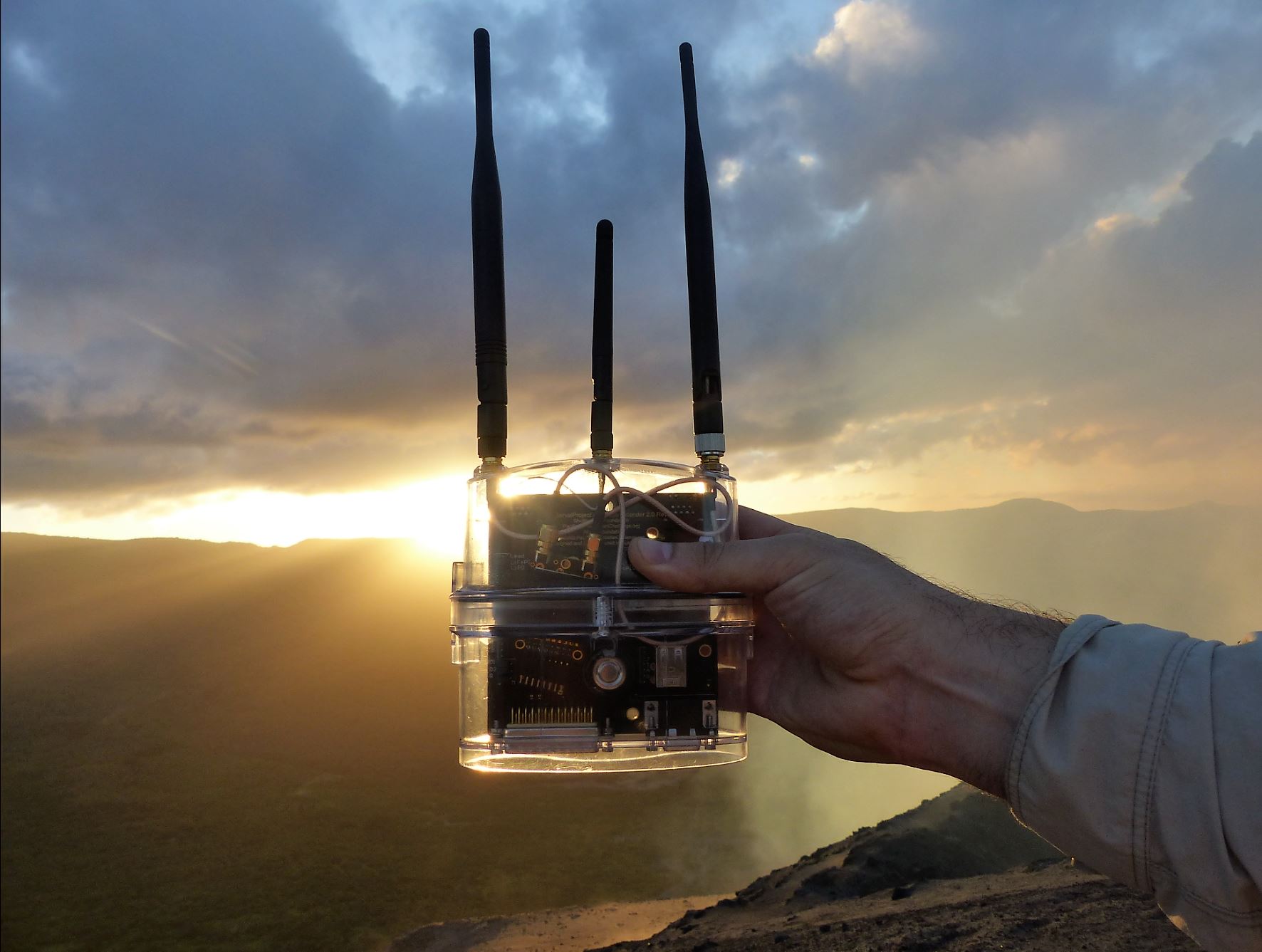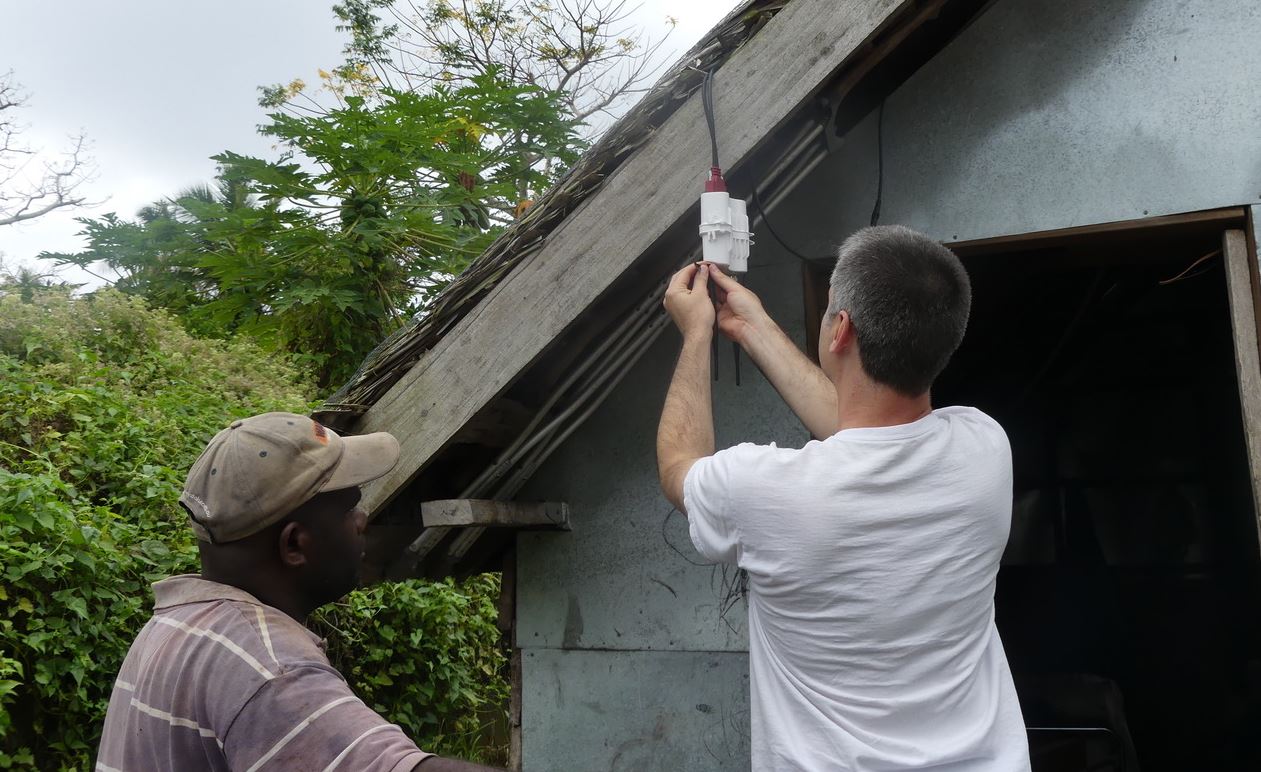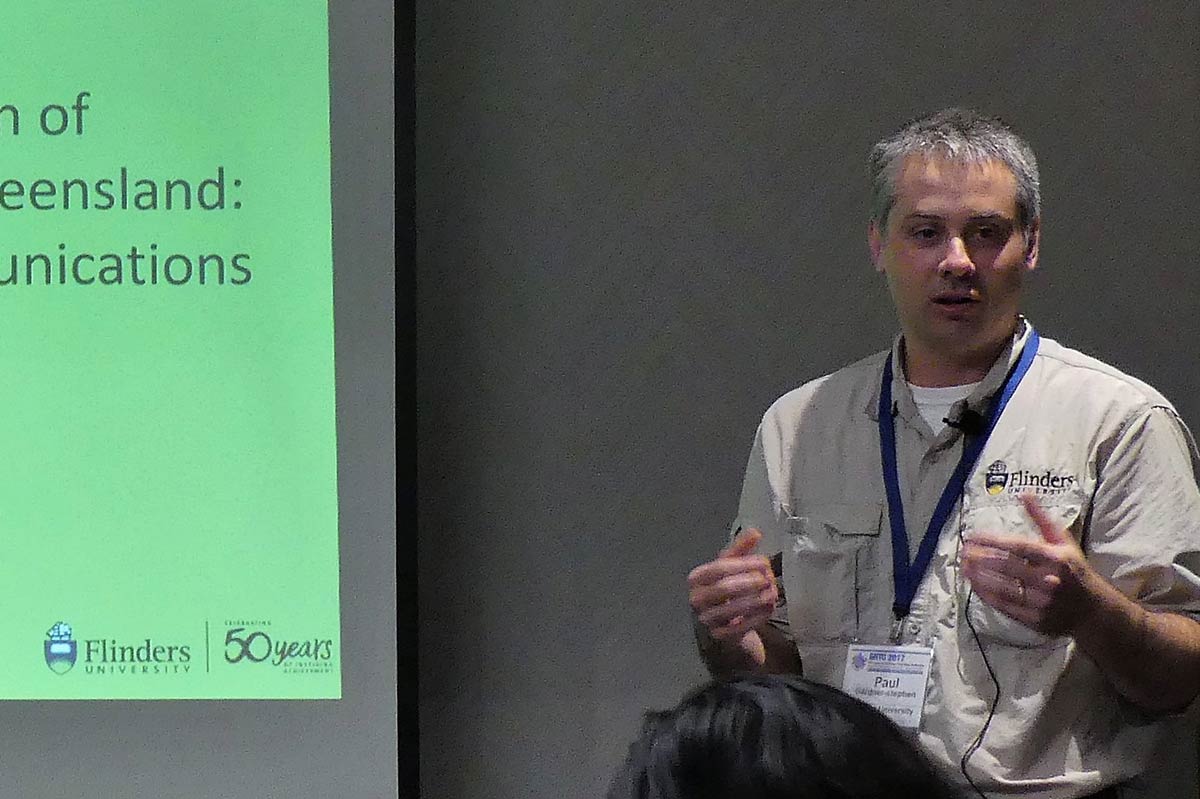
The Flinders Serval Project is progressing to its next stage of satellite integration after the latest trial in the Pacific.
As part of the Australian Government Pacific Humanitarian Challenge, Serval inventor-developer Dr Gardner-Stephen, from the College of Science and Engineering, visited Vanuatu to supervise a field trial – just when the volcano at Ambae was erupting on Manaro Voui and thousands of people evacuated.
This highlighted the need for reliable communications systems such as Serval when emergencies occur, especially in areas where cellular coverage is unreliable or absent.
The Serval Mesh can create an impromptu network, consisting only of phones.
Dr Gardner-Stephen worked with villagers over several visits to use local materials, skills and knowledge for installation.
In Pang Pang, Dr Gardner-Stephen found that while the area lacked cellular coverage, there were many places for locals to top up pre-paid credit on their phones.
“While there is no cellular coverage in the village of Pang Pang, communications and mobile computing devices are ubiquitous, which makes it a good environment to test the five Mesh Extenders we installed there,” Dr Gardner-Stephen says.
“In both Pang Pang and Epau, working with the community knowledge and local materials mean we were able to oversee installations that can be replicated after a cyclone or another disaster, when resources might be scarce.”

The inexpensive and adaptable Mesh Extenders technology in various locations around two rural villages, Pang Pang and Epau, on Efate Island, Vanuatu.
He says the integration of a low-cost satellite broadcast system into the Serval Mesh will add to the system and allow the emergency alerts and information to be quickly and affordably distributed in areas lacking cellular coverage.
The result is phones that can be used for early warning systems or in the wake of a disaster, even if phone towers and conventional networks are not operational.

After the latest field trials of the cutting-edge, low-cost mobile phone system in Vanuatu, Dr Gardner-Stephen then presented at the Global Humanitarian Technology Conference in San Jose, California.
The event, on 19-22 October, brought together innovators from around the world to address humanitarian issues for vulnerable populations.
He also visited NZ Red Cross in Wellington, New Zealand, the partners in the Humanitarian Challenge, to facilitate knowledge transfer on the use of Serval to their IT & Telecommunications Emergency Response Unit.
One of the next stage items for Serval is the satellite integration and it is anticipated it will be completed by the mid-2018.

